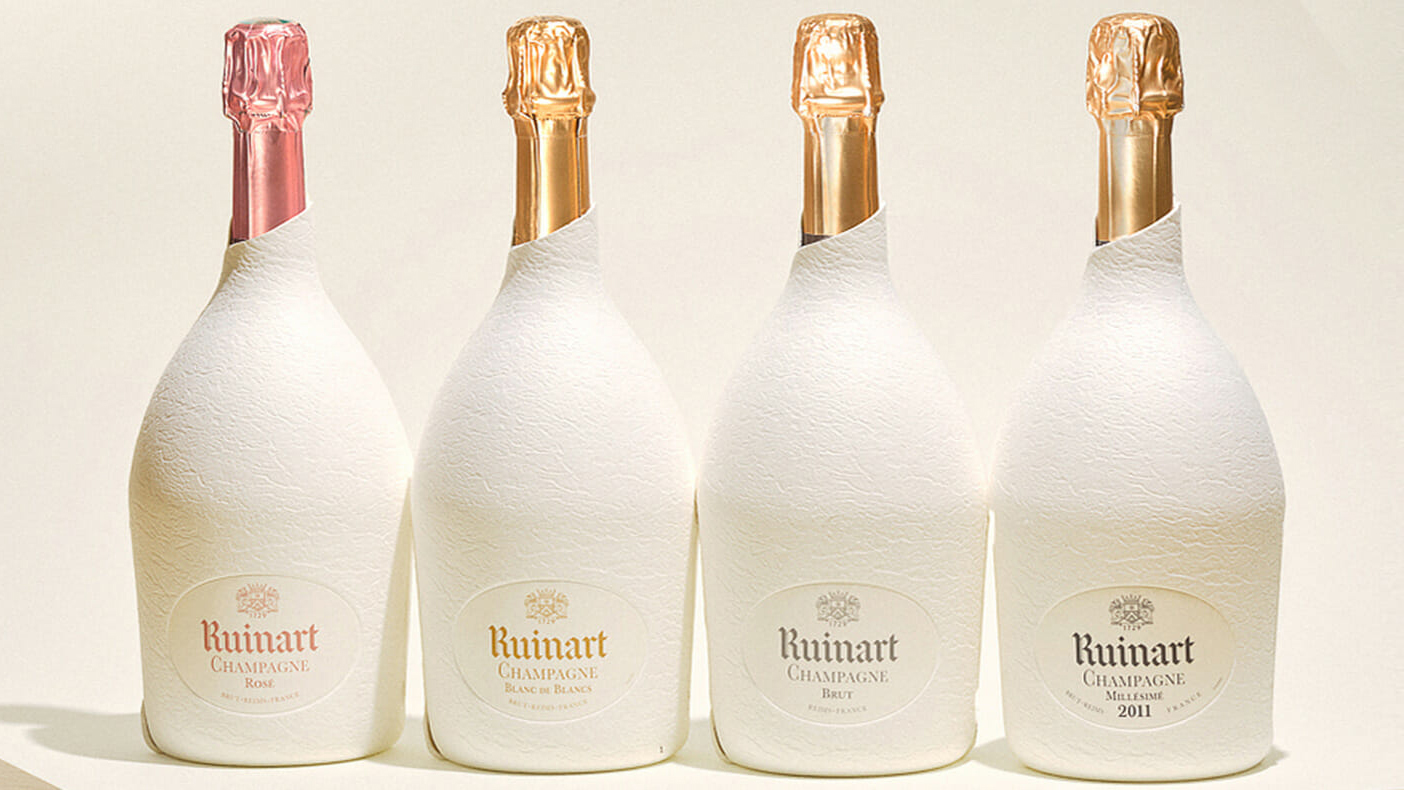LVMH-owned Champagne house Ruinart has unveiled new packaging for its iconic Blanc De Blancs, dubbed Seconde Peau, or Second Skin. Until now, the packaging of the sparkling wine was inspired by the first champagne bottles of the eighteenth century.
Ruinart Second Skin is an entirely recyclable cloak, composed of 100 percent natural wood fibers. It took two years to develop the new casing, which completely revolutionizes the coffret market. Designed by Maison Ruinart along with partners James Cropper Colourform and Pusterla 1880, it is nine times lighter than the previous packaging and reduces the carbon footprint by 60 percent. The design is supposed to evoke the chalk walls of the Maison’s Les Crayeres wine cellars in Reims. The only wine cellars in Champagne designated as a historical site (since 1931) and inscribed on UNESCO’s World Heritage List since July 2015.
The shell is free of edges due to a pressurized water jet cutting process of its contours, a technique developed specifically for Ruinart. The coffret closes thanks to a snap fastener molded directly onto the case. To make things even cooler, it even manages to retain its form in an ice bucket.
“Climate change is already happening in the vineyards,” explains Maison Ruinart cellar master Frédéric Panaiotis. “The Champagne terroir is the source of our wines’ excellence. We have a responsibility to protect and preserve this natural environment.”
“Innovative, authentic and environmentally conscious, the second skin case crystallizes our commitment to sustainability,” says Maison Ruinart President Frédéric Dufour.
The coffrets are exclusively available at Selfridges as part of its ‘Project Earth’ sustainable initiative, and can be purchased for Ruinart’s flagship Blanc De Blanc as well as Rose.
For more information on the Maison, head over to its official website.
The Champagne world’s overall is moving in the direction of sustainability. Earlier this month, Rémy Cointreau’s first-ever Champagne house, Telmont, unveiled its goals for a more sustainable future under the concept of “In Nomine Terrae” (In the Name of Mother Nature). Over the next decade, the house will become 100% organic and implement a variety of green initiatives, including eliminating outer packaging and gift boxes, transitioning to 100% renewable electricity, limiting greenhouse gas emissions indirectly related to its business, and more.


